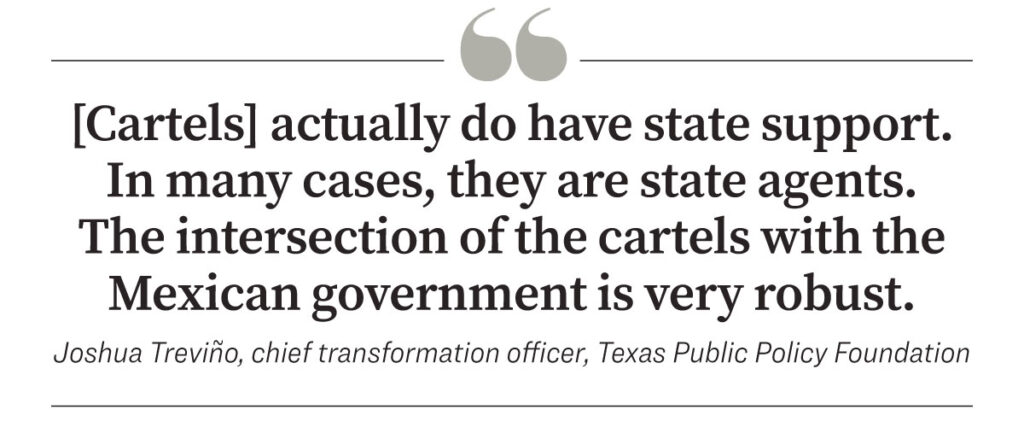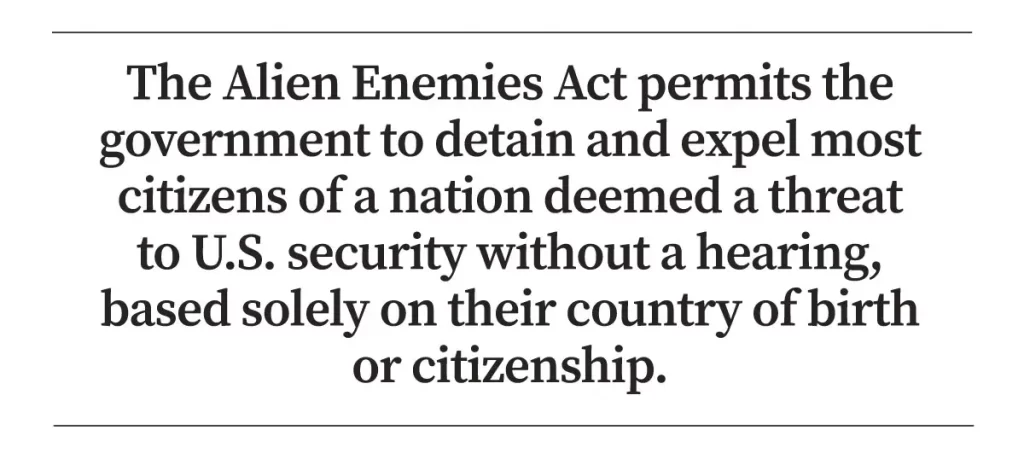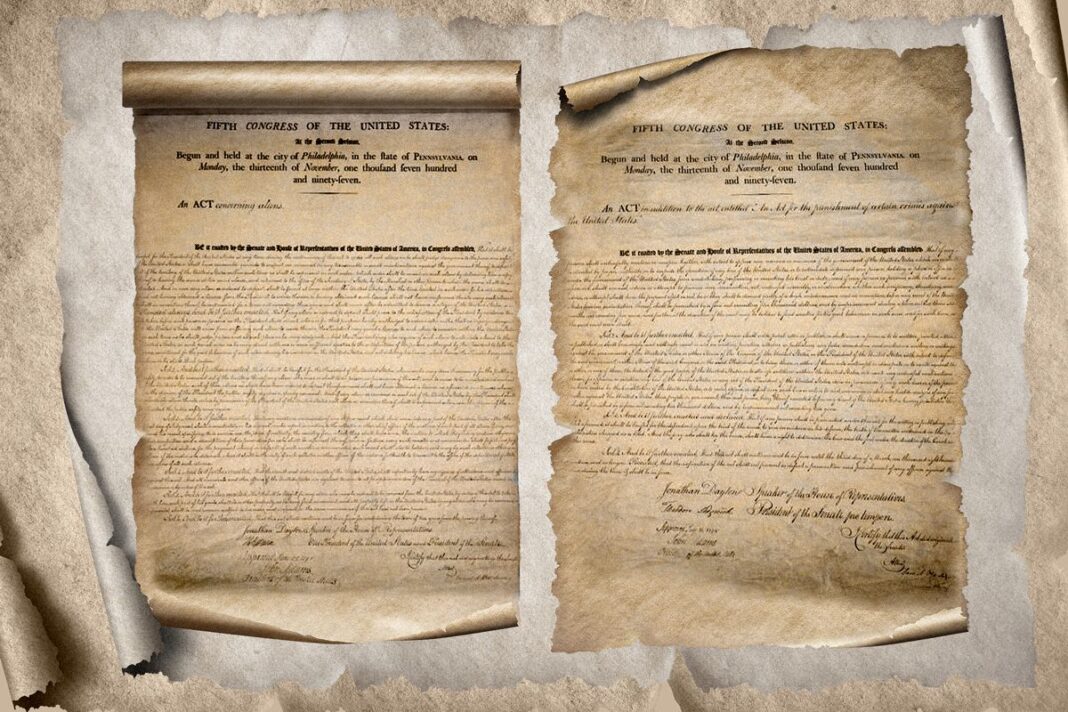The act allows the government to detain or remove foreign nationals without a hearing in times of war or invasion.
President Donald Trump is considering employing a centuries-old law to expedite the deportation of foreign national gangs and cartel members to help secure the U.S. border.
On the campaign trail, Trump pledged to “invoke the Alien Enemies Act of 1798 to target and dismantle every migrant criminal network operating on American soil.”
The Alien Enemies Act is part of the larger Alien and Sedition Acts, which Congress enacted during John Adams’s presidency when the United States was on the brink of war with France. It is a sweeping law that, when invoked, grants the president extraordinary power.
On his first day in office, Trump signed 10 border-related executive actions, including an executive order that states that the president may invoke the Alien Enemies Act to stop “any invasion or predatory incursion against the territory of the United States by a qualifying actor.”
Two conditions must be met to invoke the Act, said Joshua Treviño, chief transformation officer for the Texas Public Policy Foundation (TPPF), a conservative think tank that analyzes policy.
First, there must be a war, invasion, or predatory incursion of U.S. territory. Second, the invasion or hostile act must be committed by a foreign government.
The Alien Enemies Act has only been invoked three times in more than 200 years. It was last used by President Franklin D. Roosevelt during World War II to create Japanese internment camps after the 1941 attack on Pearl Harbor. The internment camps have since been condemned by civil rights groups.

The act was initially used to stop French people in the United States from agitating for war.
Based on that scenario, Treviño believes terrorist groups acting as foreign powers or operating in association with foreign governments could meet the requirements needed to invoke the law.
“When you look at cartel activity, then we are being invaded,” he said. If an organization can kill Americans on U.S. soil and operate with foreign state support, it’s easy to make the argument that they are invading the country, he said.
Senator Graham: Fighting Fentanyl and Drug Cartels
He said the cartels and foreign gangs could be seen as quasi-government entities assaulting the country’s sovereignty.
“They actually do have state support. In many cases, they are state agents,” Treviño said. “The intersection of the cartels with the Mexican government is very robust.”
The cartels take in billions of dollars through drug smuggling and human trafficking, have their own armed forces, and control territory within Mexico.
The Alien Enemies Act states that when the president makes a public proclamation to invoke the act, “all natives, citizens, denizens, or subjects of the hostile nation or government, being males of the age of fourteen years and upwards, who shall be within the United States, and not actually naturalized, shall be liable to be apprehended, restrained, secured and removed, as alien enemies.”

Trump issued two related executive orders that address the designation of foreign enemies and an invasion. The first order is titled: Designating Cartels and Other Organizations as Foreign Terrorist Organizations and Specially Designated Global Terrorists, and the second is: Guaranteeing the States Against Invasion.








